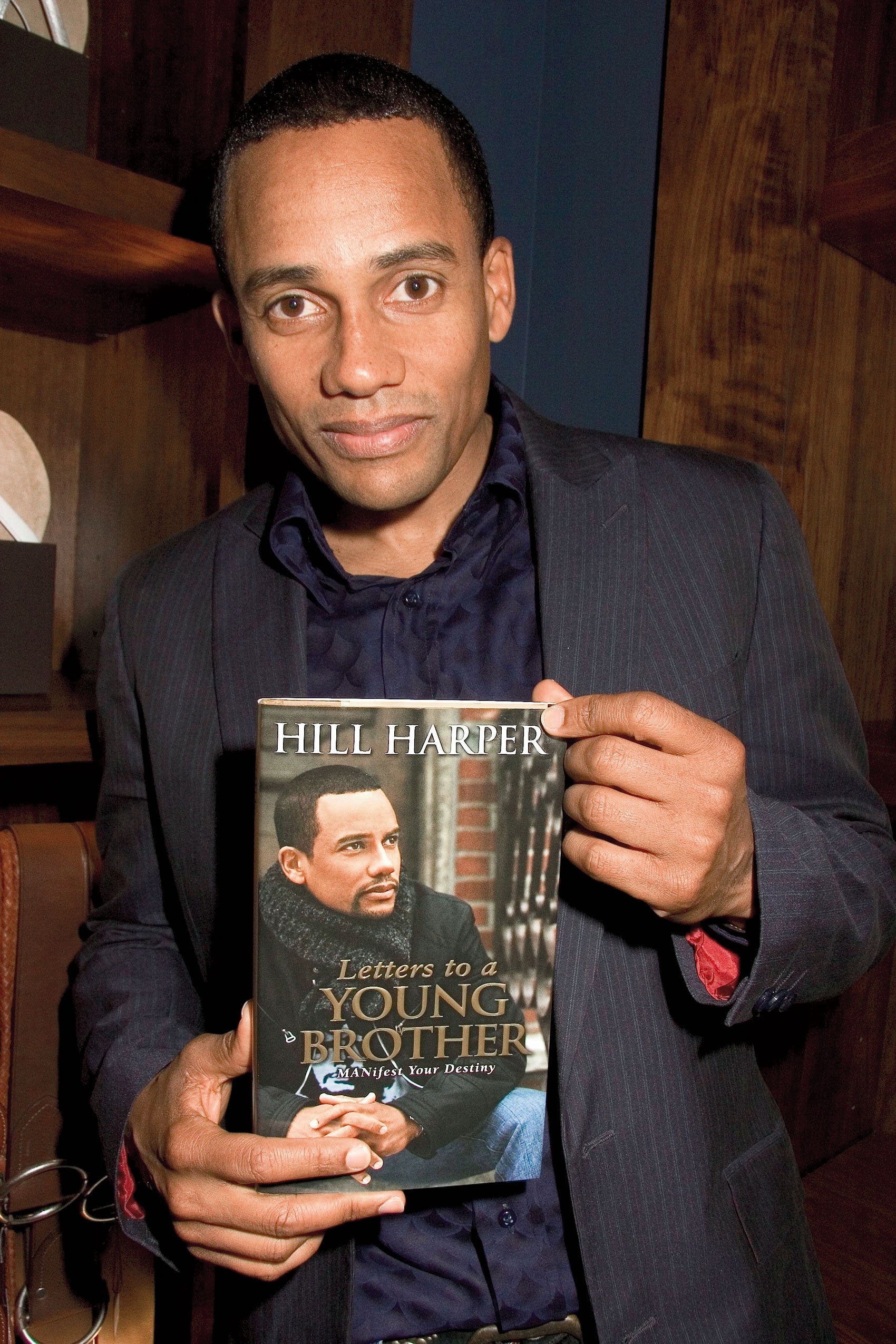Television actor hopes his “Letters” will reach black youth
“My parents barely graduated. … What makes you think I can run my own company one day?”
“If I want to be a superstar … , why should I have to go to school?”
Hill Harper ’92 heard the same questions again and again. A graduate of Harvard Law School and the John F. Kennedy School of Government, and an actor currently starring on the hit TV show “CSI: NY,” Harper frequently visited schools to talk to black youths, many of whom told him how difficult and often hopeless it seemed to stay in school or pursue a career.
Harper knew there had to be a way to reach out. “Letters to a Young Brother: MANifest Your Destiny,” published in early 2006, is his answer, a message of optimism and encouragement to teenagers increasingly disconnected from positive role models. Guest contributors to the book include Sen. Barack Obama ’91 and hip-hop artist Nas.
But a year ago, it seemed as if the book might not be published. Editors informed Harper that his intended audience was unlikely to read anything other than magazines. Knowing that any marketing campaign would have to rely heavily on word-of-mouth recommendations, Harper turned to a few key law school connections.
Voltaire Sterling ’05, then a 3L and class marshal, had invited Harper to speak at an event sponsored by the school’s Charles Hamilton Houston Institute, among other organizations, in April 2005. When Harper asked him to help promote “Letters to a Young Brother,” Sterling sprang into action, spreading the word about the book through a massive e-mail campaign that drew on a law school network of black alumni.
“Letters to a Young Brother” debuted at No. 13 on the New York Times hardcover advice best-seller list. Sterling says Harper’s position gives him a unique advantage in reaching the largest possible audience. “Young people want to emulate him because he’s a star,” he says, “and adults respect him as their intellectual peer. But ultimately what’s important is that the message hits home.”
Harper also founded the MANifest Your Destiny Foundation to provide scholarships and mentoring resources to disadvantaged students. In the face of recent studies warning of escalating dangers for young black men, his message is more urgent than ever. “You deserve a great life,” he writes to his young brothers. “I want to see you become unreasonably happy. And you can. And you will.”
